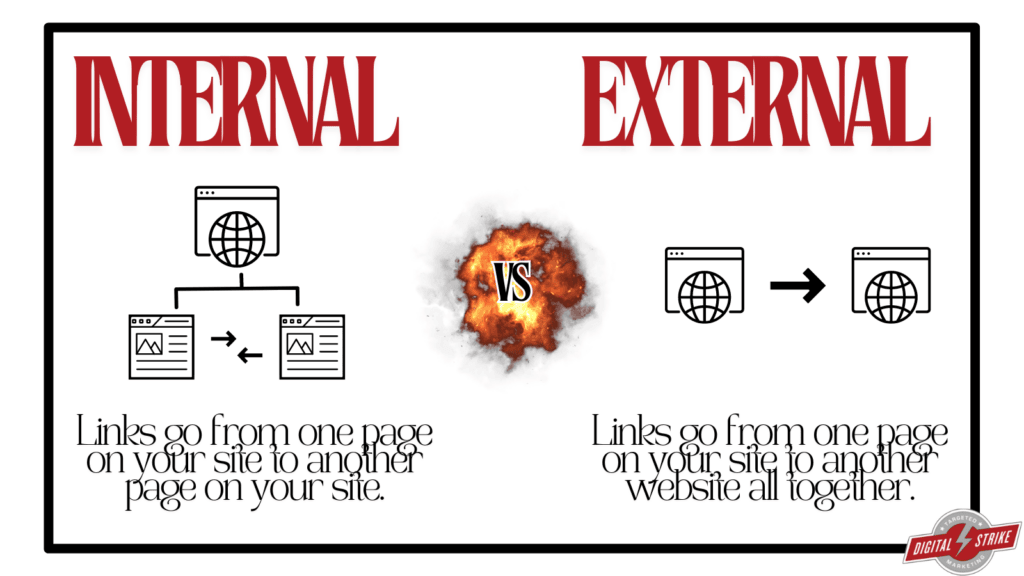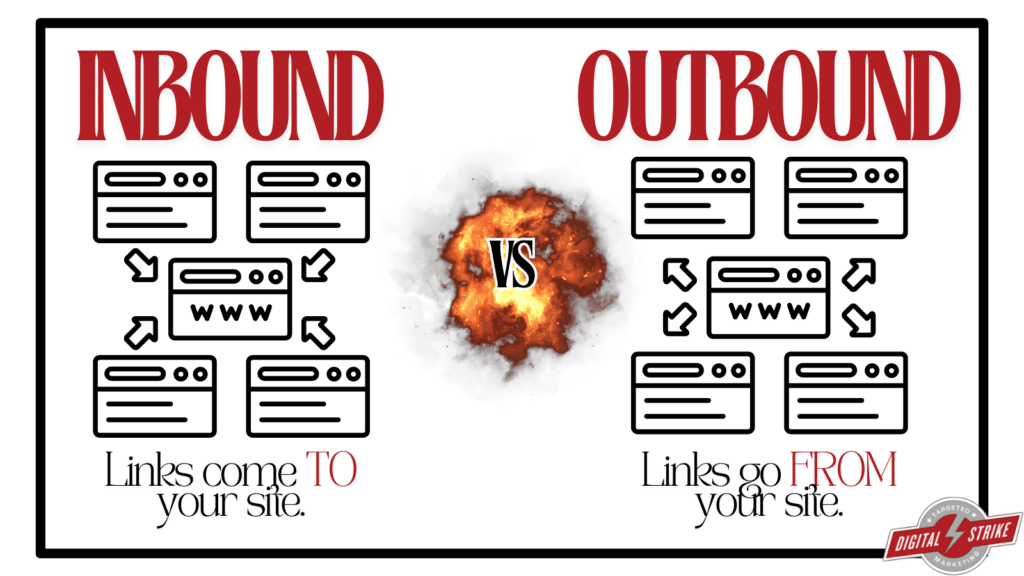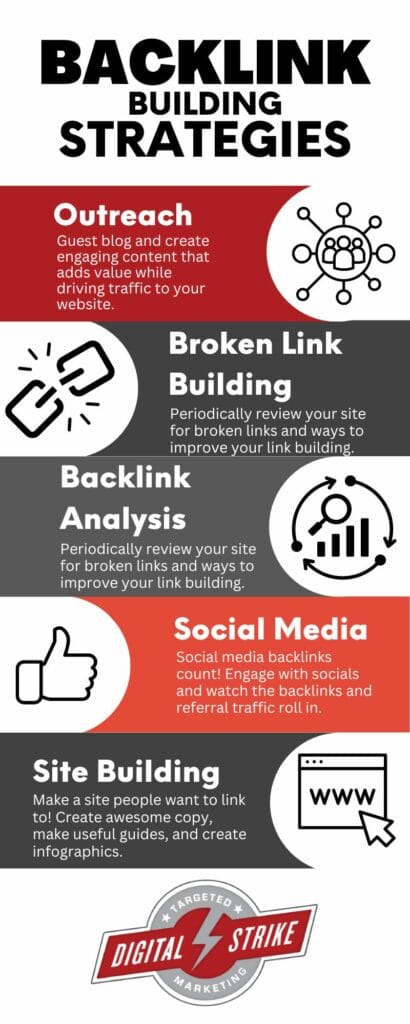Google dropped a bombshell recently: backlinks aren’t actually all that important to ranking in search engine results pages (SERPs) as many initially believed. This revelation has left many digital marketers wondering, “Are backlinks important anymore?” The answer is Yes.
But, like, it’s complicated.
Here’s why.
Backlinks? What are those?
Let’s make sure we’re all on the same page.
What’s a backlink? A backlink is a link that goes to your website from another point on the Internet, like forums, social media posts, and a competitor’s website.
Why are backlinks important? (Or, at least, why did conventional wisdom say that they were important before the Google leaks?) Having backlinks to your site is an important aspect of search engine optimization, or SEO, strategy. Specifically, backlinks act like a vote of confidence for your site, telling search engines that your site is trustworthy, relevant, and has good content worth reading. This vote of confidence affects search engine rankings, as the more high-quality backlinks your site has, the more likely search platforms are to reward your site with higher rankings in organic SERPs.
Types of Links
Now that we know what backlinks are, let’s talk more about other types of links (trust us; this knowledge will come in handy in a moment).
External Links vs Internal Links
External links are links that go from your website to another domain. These links are important for SEO because they signal to search engines that you are citing your sources and have done your research, making you appear more credible. Think of it this way: would you trust a student’s paper that cited everything properly, or a paper that ended with “Trust me, bro”?
Internal links are links that go from one page on your website to another page on your website. These links are important as they create a complex web of relevancy that tells search platforms in greater detail what pages on your site are about and how they relate to each other.

Dofollow Links vs Nofollow Links
“Dofollow” and “nofollow” are link attributes, meaning they are bits of code that tell search platforms how they should read the links they are attributed to.
Dofollow links are links that search engines know to crawl and index; these types of backlinks help boost page rankings for whatever page they direct to. By default, all links are dofollow unless specified otherwise.
Nofollow links, traditionally, were links that search engines did not crawl and index, meaning they did not affect page rankings. Google has revealed that in recent years, however, it does use nofollow link attributes as link signals, or signals to help search engines better understand links and their strength for ranking purposes.
Outbound Links vs Inbound Links
Outbound links, external links, or outgoing links, are links that go from your website to another website.
Inbound links, or incoming links, are links that come to your website from another website.

Good Backlinks vs Bad Backlinks
Not all backlinks are created equal. Google and other search engines will reward your site for having “good” backlinks… and punish your site for having too many “bad” backlinks.
A good backlink is a link to your website from a high-authority website. Having high-quality backlinks can signal to search engines that your site is worth reading and, therefore, worth rewarding with higher Google rankings.
A bad backlink is a low-quality link to your website from a low-domain authority site or site that otherwise appears spammy. Having a few bad backlinks won’t hurt your website, but if your website has tons of bad backlinks—and only bad backlinks—Google and other search platforms will penalize your site.
Importance of Backlinks
Now that you know what backlinks (and other types of links) are, it’s time to talk about why backlinks are important… just not in the same way as many digital marketers initially thought.
Many SEO strategists assumed that having lots and lots of backlinks was important for building site authority. While backlinks are important for determining domain authority in search engine algorithms, a recent Google leak revealed that a site doesn’t really need that many high-quality backlinks to rank well in organic search results. In other words, backlinks are still an important part of SEO strategy, but the quality of links should always come before quantity.
Having good quality backlinks can help:
- Build brand awareness
- Drive referral traffic, or organic traffic directed to your site from another
- Boost site authority
- Search engines understand the relevancy of web pages
7 Tips for a Robust Backlink Strategy
Building backlinks takes time and effort. Here are some of the best tried-and-true tactics to build backlinks to your website.
1. Avoid Black Hat Practices
Let’s start with what you shouldn’t do: black hat SEO practices. Black hat SEO means using techniques to boost your site’s rankings with SEO tactics that search engines do not like. When it comes to backlink building, the major black hat practice to avoid is buying links in bulk from low-domain sites.
2. Focus on Quality Over Quantity
As we mentioned before, search engines are more concerned with the quality of backlinks rather than the sheer number of backlinks. Ideally, you only want links from authoritative websites. If you’re running a healthcare-focused site, for example, you want links from the likes of WebMD and MayoClinic, not www.iMadeThisWebsiteInMyMomsBasement.net.
It’s okay if you get links from some sites with middling domain authority, though. Heck, when you’ve reached a certain size, it can be impossible to avoid even a few links from low-authority sites! What search engines look at is the overall health of your backlink profile, or your site’s profile that search engines use to rate the overall quality and trustworthiness of your backlinks.
A healthy backlink profile will include links from mostly high-authority sites, some medium-authority sites, and little to no spammy sites.
TIP: If you’re getting lots of low-quality backlinks, you can disavow them to mitigate the negative impact they have on your site. Google Search Console’s Disavow tool can let you select which URLs and domains you want to disavow.
3. Outreach/Guest Blogging
One of the more direct link building strategies you can engage in is link building outreach. This strategy involves reaching out to other website owners to guest post on their websites; the guest posts will contain a link to your website.
Guest blogging is the most common form of white hat outreach strategies. Here are some best practices for aspiring outreach bloggers to keep in mind:
- Be respectful and exciting when reaching out to site owners
- Only reach out to site owners in a similar industry or vertical as your own
- Craft high-quality content that people want to read
- Return the favor and offer to host a guest post from the organization you reach out to
4. Broken Link Building
Maybe you’ve already garnered some backlinks to your site. Congrats! Don’t just leave it at that, though. Sometimes links break for any number of reasons. Whatever the reason, a broken link will not help your site.
If you notice that another website links to your site with a broken link, reach out to that website owner and ask if they can find the source of the problem and fix it.
5. Regular Backlink Analysis
You’ll find broken links and other potential issues with your backlink profile by running regular checks.
Some SEO tools you can use for backlink analysis include:
6. Don’t Neglect Social Media
Backlinks can come from anywhere, including social media platforms. That means that regularly posting high-quality content on your social channels, building a robust social media presence, and engaging with social followers can increase the odds that people share your social posts and even directly post links to your website from their own social accounts.
7. Create a Kickass Website
Pardon our French.
The best backlinks are the ones you don’t have to work for. When your website is known for quality, people will link from their websites and socials directly to you. So make a quality website worth linking to. Populate your site with helpful, high-quality content like white papers, case studies, infographics, expert opinions, and more.

Craft a Winning Backlink Building Strategy
Are backlinks important? The answer is still, without a doubt, yes. These links may help others learn about your brand, drive some organic traffic to your site, indirectly boost site authority, and help search engines learn more about what your content is about (and how it relates to search queries). However, as Google has stated, link building is not the single-most important ranking factor for a website. There are plenty of other ranking signals that search platforms use to help rank pages, and all of them need to work in tandem to be effective.
Let the experts at Digital Strike – Targeted Marketing take some of that pressure off your plate. We have years of experience helping clients build healthy backlink profiles and execute winning SEO strategies… and we would love the opportunity to do the same for your organization.






